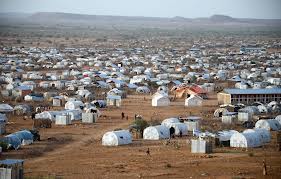Kenya to stop hosting Somali refugees: govt

Refugees from Somalia will no longer be accepted in Kenya, the government said Friday, citing security fears.
Dr. Eng Karanja Kibicho, interior ministry principal secretary, announced that the government would no longer host refugees and was disbanding its Department of Refugee Affairs, which processes refugee registration. He also said the government would close refugee camps “within the shortest possible time” because of national security concerns.
“In a single breath, the Kenyan government recognizes that the Somalis it has been hosting for nearly 25 years are still refugees, but then states it’s finished with them,” said Bill Frelick, refugee rights program director at Human Rights Watch.
“Kenya should not turn its back on people needing protection and on fundamental principles that it has pledged to respect.”
Kenya is home to over 463,000 Somali refugees who fled insecurity and fighting, including by the Islamist armed group Al-Shabaab, which is at war with the government of Somalia.
Over the years, many Somali refugees have told Human Rights Watch of Al-Shabaab’s brutal abuses against civilians, and spoken with horror about its violent tactics, including forced child recruitment and suicide attacks.
In recent years, Al-Shabaab has also carried out a string of attacks on civilians in Kenya, including killing at least 147 people at Garissa University in April 2015.
Despite the Kenyan government’s frequent statements that Somali refugees in Kenya are responsible for Kenya’s insecurity, officials have not provided credible evidence linking Somali refugees to any terrorist attacks in Kenya.
Human Rights Watch is not aware of convictions of Somali refugees in connection with any attack in Kenya. At the same time, Kenyan police have targeted Somali refugees and ethnic Somali Kenyans in discriminatory and abusive law enforcement operations, such as mass arrests and round-ups duringUsalama Watch in 2014.